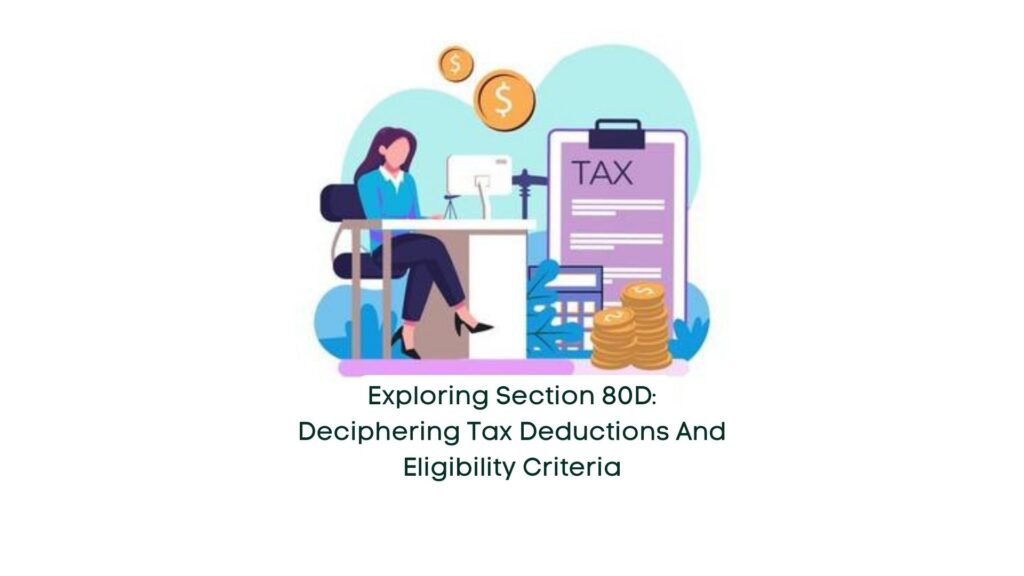
29 Feb Exploring Section 80D: Deciphering Tax Deductions and Eligibility Criteria

Health insurance serves as a crucial shield against the uncertainties of medical emergencies. To incentivize the adoption of health insurance, the Government of India has instituted tax benefits under Section 80D of the Income Tax Act.
Understanding Section 80D
Section 80D facilitates tax deductions on health insurance premiums, offering individuals and Hindu Undivided Families (HUF) relief of up to Rs 25,000 annually. Additionally, a supplementary deduction of Rs 5,000 is granted for preventive health check-ups. The ceiling for deductions under Section 80D ranges from Rs. 25,000 to Rs. 50,000 based on specific conditions.
Eligibility Criteria
Eligibility for Section 80D deductions extends solely to individual taxpayers and HUFs. Corporate entities, trusts, and partnerships are ineligible. Deductions cover health insurance premiums and healthcare expenses for senior citizens.
Allowed Deductions
Section 80D permits deductions for health insurance premiums and healthcare costs for family members, with varying limits based on age and relationship. For instance, individuals below 60 years can claim up to Rs. 25,000, while senior citizens enjoy a higher ceiling of Rs. 50,000.
Claiming Tax Benefits
Taxpayers can claim additional deductions for health insurance premiums paid on behalf of their parents. Payments made for preventive health check-ups are also eligible, subject to an annual limit of Rs. 5,000.
Key Advantages of Section 80D
Apart from tax deductions on health insurance premiums, Section 80D extends coverage to preventive health check-ups, critical illnesses, and medical expenses for senior citizens. This ensures comprehensive financial protection against unforeseen medical expenses.
Comparison with Section 80C
While Section 80D focuses on health insurance premiums and healthcare expenses, Section 80C encompasses various tax-saving investment options like ELSS mutual funds and life insurance premiums. Section 80C offers a higher maximum deduction limit compared to Section 80D.
Exclusions and Considerations
Certain exclusions apply under Section 80D, including premiums paid in cash and employer-sponsored group health insurance. It’s essential to stay abreast of tax laws and amendments to maximize benefits under Section 80D.
Conclusion
Understanding Section 80D is pivotal for leveraging tax deductions and ensuring adequate financial protection against medical contingencies. By exploring its provisions and eligibility criteria, individuals can optimize their tax savings while safeguarding their health and finances.


No Comments